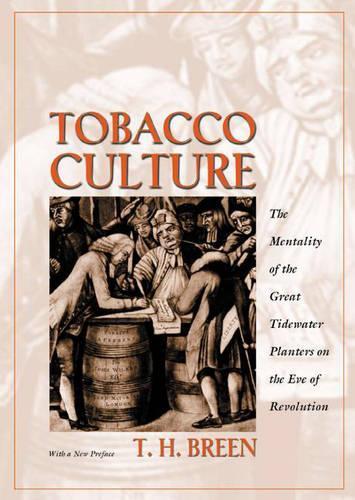
Tobacco Culture: The Mentality of the Great Tidewater Planters on the Eve of Revolution
(Paperback, Revised edition)
Publishing Details
Tobacco Culture: The Mentality of the Great Tidewater Planters on the Eve of Revolution
By (Author) T. H. Breen
Princeton University Press
Princeton University Press
23rd October 2001
Revised edition
United States
Classifications
Professional and Scholarly
Non Fiction
Agriculture, agribusiness and food production industries
History of the Americas
Social and cultural history
Economic history
Cultural studies
338.173710975509033
Physical Properties
Paperback
256
Width 140mm, Height 216mm
312g
Description
The great Tidewater planters of mid-eighteenth-century Virginia were fathers of the American Revolution. Perhaps first and foremost, they were also anxious tobacco farmers, harned by a demanding planting cycle, trans-Atlantic shipping risks, and their uneasy relations with English agents. George Washington, Thomas Jefferson and their contemporaries lived in a world that was dominated by questions of debt from across an ocean, but also one that stressed personal autonomy. T.H. Breen's study of this tobacco culture focuses on how elite planters gave meaning to existence. He examines the value-laden relationships - found in both the fields and marketplaces - that led from tobacco to politics, from agranan experience to political protest, and finally to a break with the political and economic system that they believed threatened both personal independence and honor.
Reviews
"Breen writes clearly and argues well... Tobacco Culture is enjoyable."--Allen Boyer, New York Times "T. H. Breen's important new book attempts to explain why the great Virginia Planters embraced the Revolutionary cause with so much enthusiasm. He argues that growing indebtedness to British merchants after 1750 jeopardized the planters' traditional dominance, finally precipitating 'a major cultural crisis' in the years immediately preceding Independence. Breen's major contribution is to delineate the 'mentality' of the great planters of the period when private and public distress converged... It is a superb contribution to the literature of the American Revolution."--Peter S. Onuf, William and Mary Quarterly
